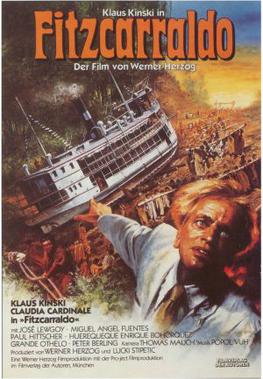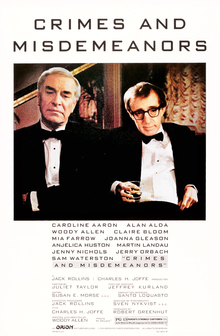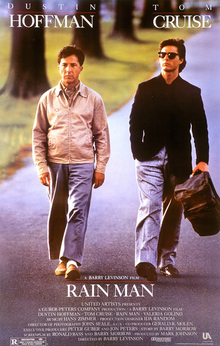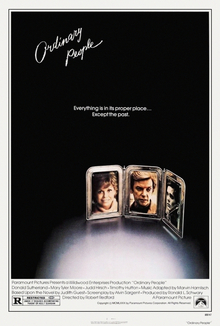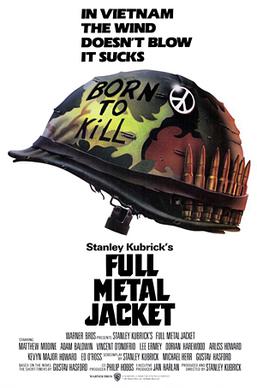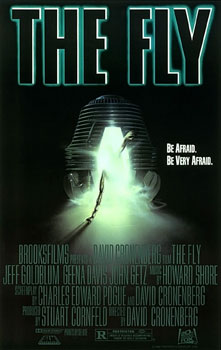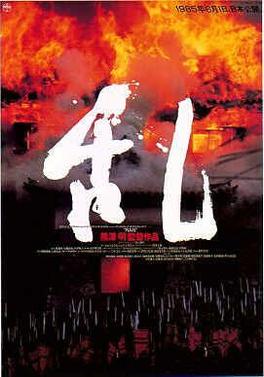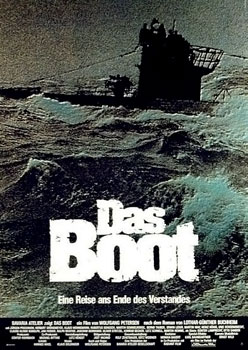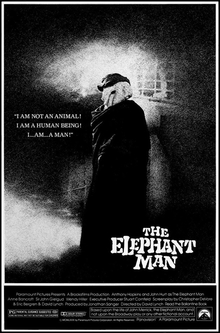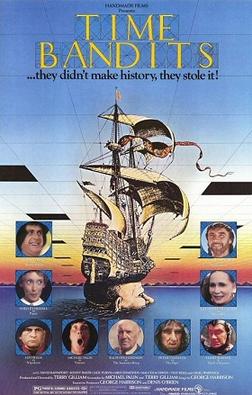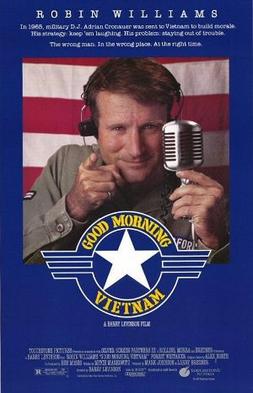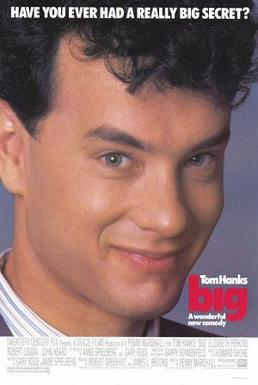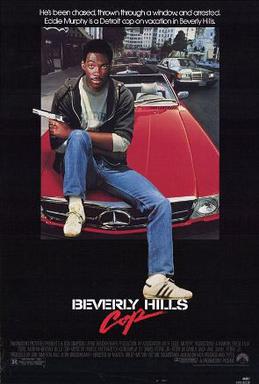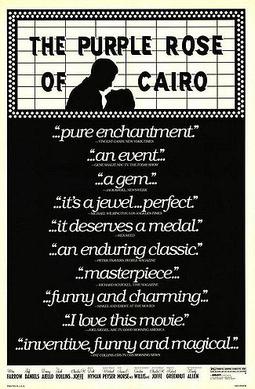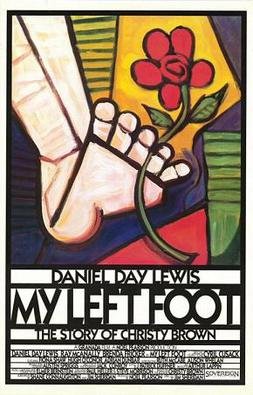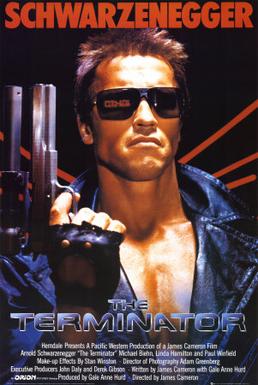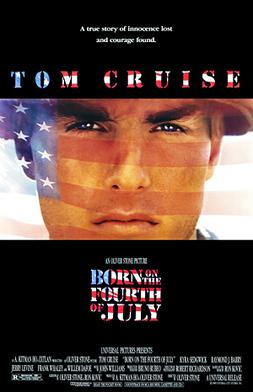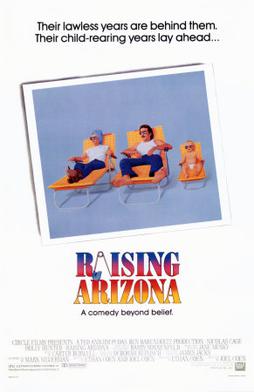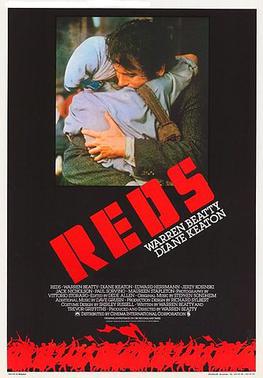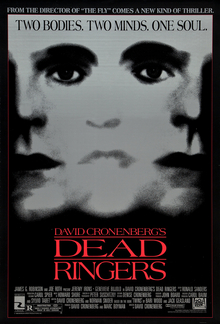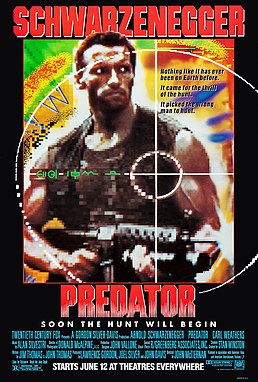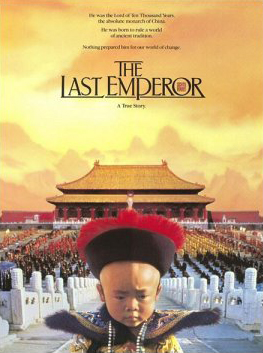40. The Blues Brothers, 1980Director: John Landis
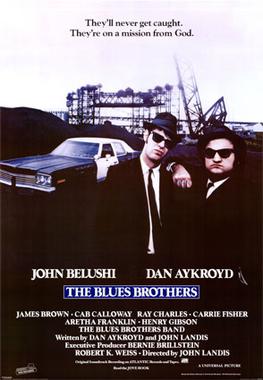
The Blues Brothers is the coolest movie. It has great music, it's funny, it has some of the best, wackiest car chase scenes in movie history. It features two comic actors at the height of their powers and a director who seemingly couldn't stop making highly entertaining movies, constantly pushing himself and his craft in the process. Jake (John Belushi) and Elwood (Dan Aykroyd) are on a mission from God to save the orphanage they grew up in so they take the task of reuniting their band, The Blues Brothers. Along the way they wind up being chased by a random assortment of crazy characters. The Blues Brothers is not just a great comedy, it's a great movie that happens to be really funny as well. Featuring so many memorable cameos, most memorable may be Aretha Franklin's whose musical number brings the house down. One of my favorite comedies of the 1980s, The Blues Brothers is the only film, coming from a SNL sketch, that went above and beyond its origins. Unfortunately, John Belushi's passing made it impossible for a true sequel to the first one (we instead got the abysmal Blues Brothers 2000), but watching Belushi in this film reminds me of what a tremendous on screen presence he was.
39. Sex, Lies, and Videotape, 1989Director: Steven Soderbergh

The movie that showed Hollywood that American independent cinema could catch the attention of general movie audiences as well, Sex, Lies, and Videotape is not just a great film, it's one of the most important films for what it did to film for the next decade. Released by Miramax in 1989, Videotape grossed $24 million in the box office which was twenty-four times its budget. The film turned Miramax into a powerhouse and paved the way for films by Quentin Tarantino, Robert Rodriguez, Kevin Smith and Richard Linklater in the '90s. The movie itself is great, starring Peter Gallagher, James Spader, Andie MacDowell, and Laura San Giacomo---Sex, Lies, and Videotape is about Graham Dalton (James Spader) who returns to live in Baton Rouge after being a drifter for a number of years. He reunites with his old college friend, John (Gallagher), and subsequently becomes a subject of curiosity for John's wife (played by MacDowell) and her sister. The women will both soon discover that Graham likes to videotape women, asking them questions about their sexuality, and he uses these videos to get himself off. The film becomes an interesting examination of sexuality and relationships. Plot-wise, Videotape is a true original. Add that with the film's strong sense of tone and character and there's no wonder why Steven Soderbergh became a director on everyone's watchlist. He used that power, somewhat unfortunately, by making a series of interesting, yet uneven low budget films. It wasn't until "Out of Sight" that he became a Hollywood A-list director. Sex, Lies, and Videotape still remains one of his best films, though, because it's one of Soderbergh's few contemporary dramas and it's just a great debut where every element of the film manages to work wonderfully.
38. Kagemusha, 1980Director: Akira Kurosawa
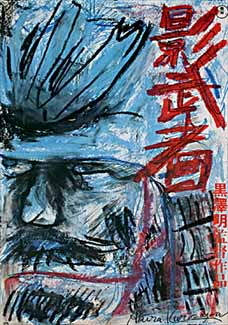
One of cinema's all-time great auteurs, Akira Kurosawa, proved in 1980 (his fifth decade in filmmaking), that he could still make an amazing epic at age 70. Kagemusha is a masterfully made film set during the Warring States period of Japan and involves a lower-class criminal who is taught to impersonate a dying warlord in order to stop other lords from attacking their clan. The film ultimately ends with the Battle of Nagashino. The film is beautifully shot and has impeccable art direction. Coming from a filmmaker who really didn't need to prove himself anymore with his long, illustrious career in Japan to come out with a film like Kagemusha so late in his career is just remarkable.
37. Wall Street, 1987Director: Oliver Stone
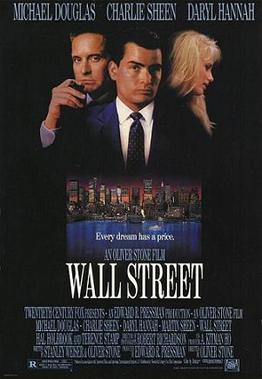
In the late '80s and early '90s, Oliver Stone was quite the provocateur. He appeared to have a keen interest in pushing the envelope and people's buttons with uncompromising films like Platoon, Born on the Fourth of July, and JFK. Wall Street is just as uncompromising, but what makes it so good is just how fun it is to watch unfold. Starring Michael Douglas in his Oscar-winning role as Gordon Gekko and a young Charlie Sheen as Bud Fox. Bud is a young junior stockbroker who wants nothing more than to get to the top of his profession, Gordon is a legendary Wall Street player who Bud idolizes. When their lives eventually coincide with each other, Bud Fox will soon come to find out just how ruthless and evil Gekko really is. Wall Street is a classic tale of the dangers of greed and it's incredible just how relevant the film is today. Oliver Stone followed it up over twenty years later with Money Never Sleeps, but the sequel seems rather tame compared to the first film. Michael Douglas is so evil and yet so good, you can't help but have a part of yourself want to root for him, even if another part of yourself despises him so much.
36. Robocop, 1987Director: Paul Verhoeven

Robocop is like The Terminator's cousin, only way more dangerous, way more reckless, way more fun. Robocop though, in my modest opinion, is one of the greatest sci-fi action films ever made. It's so incredibly solid and gleefully violent that any action fan will both love this film and laugh at its ridiculousness. Omni Consumer Products is looking for ways to create new ways to help the police force manage crime better. Their first proposition is the ED-209, a giant robot trained to kill evildoers. Unfortunately, the ED-209 malfunctions and winds up killing someone at its presentation. Luckily for OCP, Office Murphy has just suffered a terribly gruesome death at the hands of Clarence Boddicker (played by Kurtwood Smith) who is one of the most despicable, unpredictable villains in movie history. His evilness is so over-the-top and so well-portrayed by Kurtwood Smith that you can't help but laugh at how far the movie takes him.
OCP takes Officer Murphy and turns into Robocop, who is half-man, half-robot. He quickly becomes a model police officer in Detroit, taking down bad guys left and right, much to the chagrin of both Clarence and the police department who feel slighted by his success. The movie's greatest strength is its ability to never take itself too seriously, it's having just as much fun as you are watching it.
35. Blood Simple, 1984Director: The Coen Brothers

Blood Simple is The Coen Brothers' debut film and it's their first entry into the neo-noir crime genre. It's a genre they would later master with Fargo and No Country for Old Men. What may surprise you with their low budget debut is the fact that Blood Simple is about as close to a perfect debut film as any filmmaker could hope for, they pretty much already mastered the genre on their first try. Blood Simple is so good because its plot is simple, but very carefully constructed. The simple layers of the film is laid out so deliberately that when a character screws up, everything starts to unravel and things get really intense. The film is well-shot, well-acted, and it's one of the prime examples of indie cinema of the '80s.
34. Aliens, 1986Director: James Cameron

I just said that Robocop was one of the best science-fiction action films ever made, well Aliens is just as great, perhaps even better. The reason why Aliens tops The Terminator is that, of course James Cameron bettered himself his next time around. James Cameron is one of those filmmakers who, when a film of his comes out, the rest of the filmmaking industry has to catch up to him. His work, especially in the '80s and '90s, would often go so far beyond films of its nature that they would actually advance the genre on so many levels. What's more is the fact that Aliens is one of the few sequels from the era that actually might be just as good, if not better, than the original film. The primary reason is the way it boldly changes genres from sci-fi/body-horror to all-out, balls-out action flick. Sigourney Weaver turns into a badass heroine ("Get away from her, you bitch!") and the visual effects are excellent. All of these things are what makes Aliens such a joy to watch.
33. ET, 1982Director: Steven Spielberg
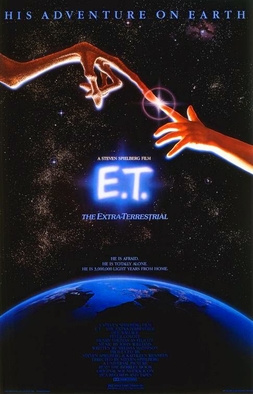
I think anybody around my age grew up on films like ET and therefore it has a special place in my heart for being such a memorable film for me when I was growing up. Watching it again instantly takes me back to a more innocent time, it brings out the kid in me everytime. ET is quintessential Spielberg where all of his sensibilities as a director is channeled into a film that becomes a true spectacle. For every kid, the film plays right into their imagination and it's heartbreaking third act will have them all in tears. The '80s might be marked as a time when blockbuster family films started to take over, but those films were
good and filmmakers like Spielberg and Robert Zemeckis made great use of the budgets they had and still managed to tell stories that felt original and timeless. ET is what all family films should aspire to be like. It has so many iconic scenes, so many images that will forever be burned into my brain.
32. Distant Voices, Still Lives, 1988Director: Terence Davies

One of the best British films from the '80s, Distant Voices may jar your expectations a little bit as the film doesn't follow a typical plot structure and it seems to be comprised mostly of characters singing songs. But Distant Voices, Still Lives is powerful in how it accurately reflects a time in each of these characters lives. This is a film literally composed of memories. The first part harkens back to the characters as kids growing up in Liverpool during the '40s, the second part is the lives they live as adults in the '50s. There's heartbreak, turmoil, and loneliness inside of each of them, but when they get together, they're lively and are singing songs. The film's odd, atypical structure may dizzy and confuse some, but once you get into it, it's cinema at its purest.
31. The Last Temptation of Christ, 1988Director: Martin Scorsese

A long-time pet project for Martin Scorsese, The Last Temptation of Christ could be marked as the climax of Scorsese's 80s films. It often surprises me how people don't mention this film when they mention Scorsese's best films. That might be a testament to just how great Taxi Driver, Raging Bull, and Goodfellas are, but Scorsese also made an epic about the life of Jesus Christ. And it's a ballsy approach to a subject that is often very sensitive material for Christians. What you get from Last Temptation, though, is an honest attempt to properly imagine the life of Jesus Christ in the most realistic terms that are possible. That if he actually lived as a human being at a certain point, then he would have flaws, he would have temptations, he would have urges, just like any other human being. By attempting to humanize Jesus Christ, Last Temptation manages to make him much more relatable, more three-dimensional. Of course, this sparked an outrage to Christian groups all over America, but what they fail to realize is that Scorsese was a devout Catholic himself. In fact, there was a certain point in his life where he seriously considered becoming a priest. Taking that into consideration, you really get the sense that Last Temptation of Christ is really close to Scorsese's heart. His passion and devotion to the subject really comes through in this film which also features great acting from Willem Dafoe.
For final words on Last Temptation, I think Roger Ebert says it best:
"Scorsese and Schrader have not made a film that panders to the audience--as almost all Hollywood religious epics traditionally have. They have paid Christ the compliment of taking him and his message seriously, and they have made a film that does not turn him into a garish, emasculated image from a religious postcard. Here he is flesh and blood, struggling, questioning, asking himself and his father which is the right way, and finally, after great suffering, earning the right to say, on the cross, "It is accomplished.""






